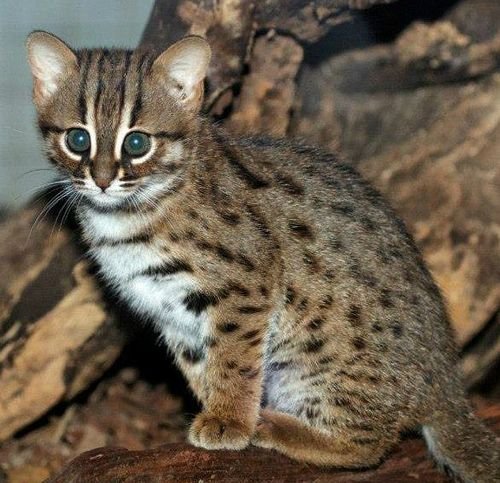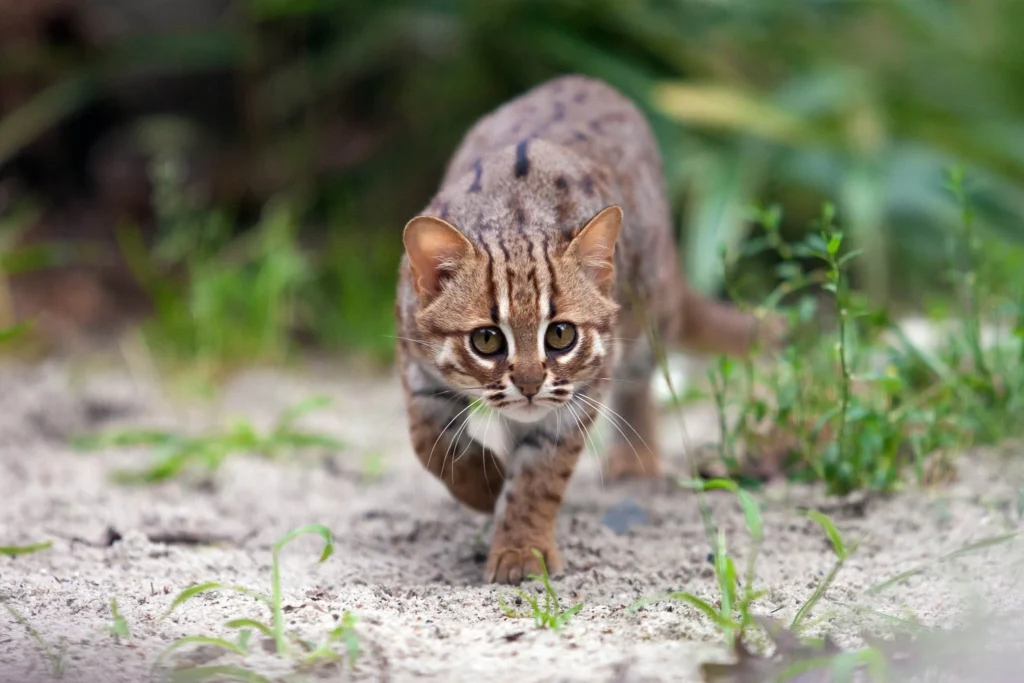
The rusty-spotted cat, Prionailurus rubiginosus, is the smallest wild cat species in the world, typically weighing under 1.5 kilograms (3.3 pounds). It is found in scarred populations across India, Sri Lanka, and Nepal. This diminutive feline is named for its beautiful reddish-brown or rust-colored spots and streaks that contrast against a greyish-brown background, often merging into stripes on its head and neck. It has a relatively short, slender tail and large eyes. Despite its tiny size, it is a highly agile and largely nocturnal hunter, one found in dense scrub, grasslands, and deciduous forests, and occasionally near human settlements. Its diet consists primarily of rodents, birds, lizards, frogs, and insects, showcasing its remarkable hunting prowess for its size.

The rusty-spotted cat plays a crucial ecological role as a highly efficient predator of small animals within its diverse Asian habitats. By controlling populations of rodents and other small vertebrates, they help prevent agricultural damage and contribute to the natural balance of their ecosystems. Their presence can be an indicator of a healthy small-prey base and a functioning food web. Despite their small size, they are part of the intricate predator-prey dynamics that maintain biodiversity. Facing threats from habitat loss due to agriculture and human encroachment, and one is persecuted due to mistaken identity with domestic cats, protecting this unique species is vital. The conservation of the rusty-spotted cat is essential not only for the survival of this remarkable miniature feline but also for the ecological well-being of the varied landscapes it inhabits.
Every day, wild cats around the world face threats like habitat loss, poaching, and natural climate progression. But hope isn’t lost. With your support, we can protect these majestic animals and preserve their habitats.
Join our growing community of wildlife champions and help create a safer future for all 40 wild cat species.
Zoo-EV is a nonprofit organization dedicated to the protection and preservation of the world’s 40 wild cat species through education, community engagement, and conservation initiatives. Zoo-EV is recognized as a 501(c)(3) tax-exempt organization by the IRS, with the Employer Identification Number (EIN) 88-3636567.